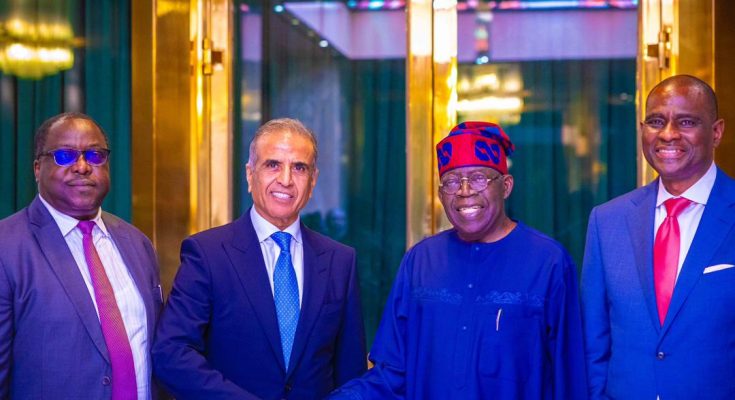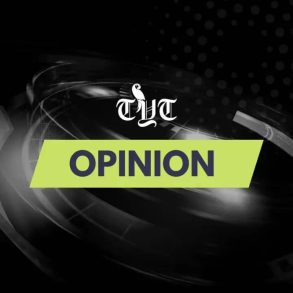President Bola Ahmed Tinubu has told world leaders in Paris, France that Nigeria is eager to engage in business with their respective nations.
He also aligned himself with the growing consensus advocating for a revamp of the global financial system.
The restructuring would prioritize poverty alleviation, debt restructuring or cancellation, and increased consideration for countries vulnerable to the effects of climate change and Covid-19.
Mr. Dele Alake, the President’s Special Adviser on Communication, Special Duties and Strategy said President Tinubu arrived at Palais Brongniart, the event venue, at 8:59 am (Local Time) to partake in the opening ceremony of the High-Level Summit for New Global Financing Pact, adding that Upon his arrival, he was warmly received by Catherine Colonna, the French Minister of Europe and Foreign Affairs.
French President Emmanuel Macron, in his welcome address to the world leaders in Paris, emphasized that the summit’s objective was to formulate a fresh financial framework that would enhance funding and provide support to developing nations for energy transition and poverty reduction, while respecting the autonomy of each country.
President Macron acknowledged the on-going challenges faced by African nations on the global stage, particularly the burden of debt hindering their growth and development.
“Covid-19 pandemic brought lots of difficulties and now we are faced with the war in Ukraine that has been draining resources that should be channeled into human development,” he said.
Macron emphasized to leaders representing 50 countries, multilateral institutions, and the private sector that justice and fairness must be paramount in the redesign of the new global financial system. He emphasized the need for increased attention towards the most vulnerable populations.
The French President outlined four key elements that should be taken into account by the leaders. Firstly, he stressed the importance of recognizing that poverty reduction necessitates collaborative efforts and a more inclusive and comprehensive framework.
must admit that no country can succeed alone in reducing poverty and protecting the planet,” he added.
Macron also highlighted the importance of tailoring the framework to suit the specific circumstances of each country, including the involvement of subregional entities. He emphasized the need for clear delineation of responsibilities and benefits. Furthermore, Macron urged for a transformation of multilateral institutions such as the International Monetary Fund and World Bank to become more focused on serving the needs of the people and generating effective solutions.
Recognizing the significant role played by the private sector, Macron emphasized the necessity of their active participation in the new pact. He emphasized that the private sector controls a substantial portion of financial instruments that need to be mobilized to foster more equitable development, particularly in critical areas such as healthcare, education, and food security.
On behalf of the African countries, the President of Niger Republic, Mohammed Bazoum, said the new pact must be “urgent” and “essential” to Africa, and the framework should be “just” and “robust” in reflecting the reality of developing countries as partners.
Bazoum said the challenges of impoverishment and desertification had stimulated unrest in most countries, affecting peace and stability in sub-regions and the continent.
“In Africa, we need support for infrastructure, health, food security and education,” he stated.
UN Secretary General, Antonio Guterres, told the gathering of leaders that the high level summit would need more mobilisation and political will for redesign and implementation.
The UN scribe said many countries were still struggling from effects of Covid-19 and climate change, and the war in Ukraine had heightened sufferings.
Guterres said some African countries had been unable to service their debts, with indications that generations might be affected.
“African countries,” he said, “were not properly captured in the global order.”
He said the new global financial pact must address fragmentations and frustrations, and enable the kind of change that encourages debt relief, suspension of repayments, change of business models and more commitment from development banks, with guarantees.
The UN scribe said leaders must look beyond reforms, and accept the need for transformation.
“We are at a moment of truth and reckoning, and we can make it a moment of hope,” Guterres said.
Climate Activist, Vanessa Nakate, from Uganda, who called for a moment of silence for the helpless and hopeless across the world, said broken promises cost the lives of many in developing nations.
The Presidents and leaders of multilateral institutions and the private sector at the Summit went into syndicate sessions to discuss the new financial architecture.
President Tinubu will on Friday participate at the summit, which will unveil a New Global Financing Pact and mechanism for implementation.






